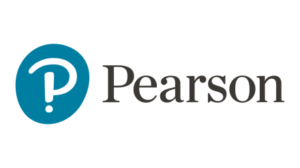Within the world of language, English has been this eternal form of sharing and influencing between various cultures worldwide. In such a vast field of lingua franca, it is crucial to learn English that speaks for itself. In this article, we will explore the 250 most common English words found in daily life for anyone who wants a complete and updated list of all possible uses.
Understanding the Importance of Common English Words
The foundation of effective communication lies in the vocabulary we use daily. Common English words form the bedrock of conversations, enabling us to express ideas, emotions, and actions succinctly. These words are pivotal in day-to-day interactions, whether in personal, academic, or professional contexts.
The Basics: Pronouns, Prepositions, and Conjunctions
Pronouns: The Replacements
Pronouns are indispensable in avoiding redundancy in speech and writing. Common pronouns include:
- I, you, he, she, it, we, they
- Me, him, her, us, them
- My, your, his, her, its, our, their
- Mine, yours, hers, ours, theirs
These words replace nouns, making sentences less repetitive and more fluid.
Prepositions: The Connectors
Prepositions are critical in showing relationships between different elements within a sentence. Frequently used prepositions are:
- At, by, for, in, of, on, to, with
- About, above, across, after, against
- Between, during, from, under, until
They indicate direction, location, time, and other abstract relationships.
Conjunctions: The Linkers
Conjunctions connect clauses, sentences, or words, ensuring the coherence of thoughts. Common conjunctions include:
- And, but, or, nor, for, so, yet
- Although, because, since, unless
These words are crucial for constructing complex and compound sentences.
Everyday Verbs: Actions and States
Verbs are the action words in English, and mastering them is vital for conveying actions and states of being. Essential verbs include:
- Be, have, do, say, get, make, go, know, take, see, come, think, look, want, give, use, find, tell, ask, work, seem, feel, try, leave, call
These verbs are used in various tenses, reflecting different times and aspects of actions.
Common Nouns: People, Places, and Things
Nouns are the naming words for people, places, and things. Frequently used nouns include:
- Time, person, year, way, day, thing, man, world, life, hand, part, child, eye, woman, place, work, week, case, point, government, company, number, group, problem, fact
These nouns cover a wide range of common entities encountered in daily life.
Essential Adjectives: Describing the World
Adjectives provide detail and specificity, describing the qualities of nouns. Important adjectives include:
- Good, new, first, last, long, great, little, own, other, old, right, big, high, different, small, large, next, early, young, important, few, public, bad, same, able
These adjectives help in painting a vivid picture and conveying precise meanings.
Numbers and Quantifiers: Specifying Amounts
Numbers and quantifiers are used to specify quantities and amounts. Common examples are:
- One, two, three, four, five, six, seven, eight, nine, ten
- Some, many, few, several, all, any, each, every, no
These words are fundamental in counting and measuring.
Adverbs: Modifying Verbs, Adjectives, and Other Adverbs
Adverbs modify verbs, adjectives, and other adverbs, providing additional context. Common adverbs include:
- Very, too, quite, more, most, less, least, now, then, there, here, always, never, often, sometimes, usually, very, almost, enough, so, too
They indicate manner, degree, frequency, time, and place.
Interjections: Expressing Emotions
Interjections are words or phrases that express emotions or sudden bursts of feelings. Frequently used interjections are:
- Oh, wow, ah, ouch, hey, well, um, hmm, ugh, aha
These words are often used in casual and spontaneous speech.
Transition Words: Enhancing Flow
Transition words and phrases are vital for connecting ideas and ensuring a smooth flow of text. Common transitions include:
- However, therefore, moreover, consequently, additionally, likewise, meanwhile, similarly
These words aid in logical progression and coherence.
Application in Real-Life Scenarios
Conversations
In daily conversations, using a mix of these common words enhances clarity and understanding. For example:
- Greeting: “Hello, how are you?”
- Introducing: “This is my friend, Sarah.”
- Asking for help: “Can you help me with this?”
Writing
In writing, whether emails, reports, or essays, these words are the building blocks of effective communication. For instance:
- Email: “I hope this email finds you well. I am writing to inform you about the upcoming meeting.”
- Report: “The data shows a significant increase in sales over the last quarter.”
Reading and Listening
Understanding these words is crucial for comprehending texts and spoken language. It allows for better engagement with books, articles, podcasts, and conversations.
Conclusion
Mastering the 250+ most common English words is a stepping stone towards fluent communication. These words form the core of the English language, enabling effective expression and comprehension in various contexts. By integrating these words into your daily practice, you enhance your ability to navigate and connect with the world around you.





